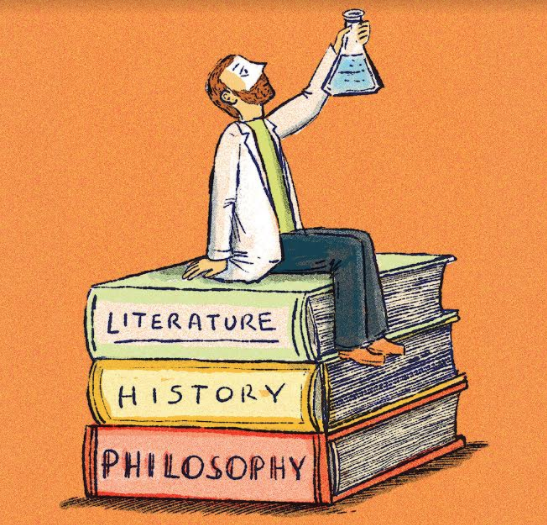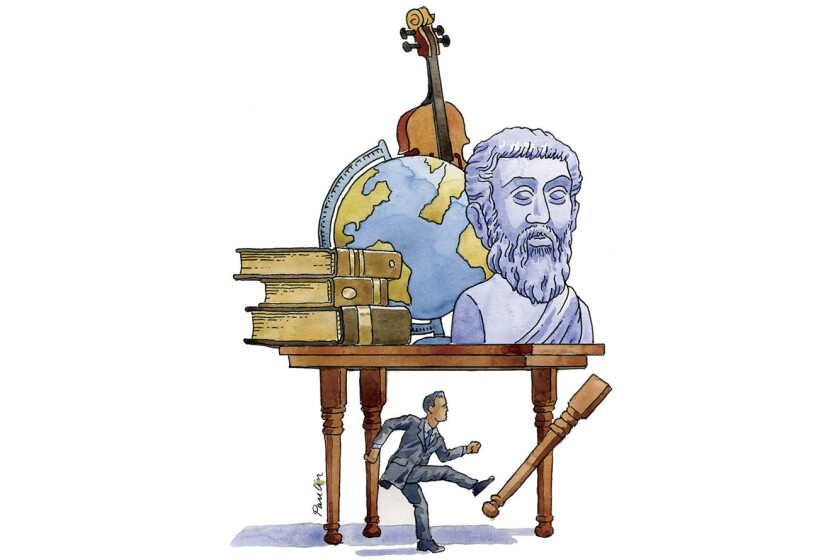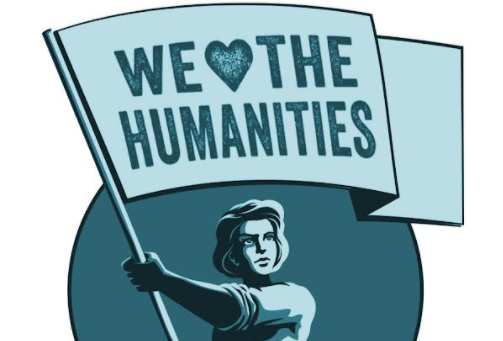By Panagiota Katsaveli,
Is it worth dealing with the humanities in a STEM and technology-filled world? This constitutes one of the most persistent questions that appear in people’s minds, since, for most people, the humanities are a relatively dead and worthless field. Many assert the primacy of STEM fields, while for Humanistic Studies, public figures belittle them, parents urge their children to avoid them, and students choose them as their area of study less and less. Contemporary society seems to have reached a point where it is unable to recognize the truly unmatched value of humanistic studies in our day and age.
Before looking into the importance of the field known as humanities, it would be beneficial to explore the meaning and content of this concept. Giving a definition to the humanities has proven to be a quite difficult process, since there are always complaints about what is included in, or left out. One approach is to give lists that involve different principles, such as literature, philosophy, etc. This not only fails to give a concrete answer as to what the humanities are, but it also sparks disagreement about the areas included. Another option is to describe the humanities as disciplines that examine the human condition or culture. In this case, the definition seems too broad and open to interpretation, which may lead to claims of the humanities being irrelevant, not valuable, and not worthy of serious engagement. The best approach seems to be to describe what the humanities essentially deal with. The distinct fields within the humanities examine and analyze artifacts created by human beings. One could say that the humanities help us analyze and deal with complex moral issues, assist us in understanding what goes on inside of us — to show us what it means to be a human being.

Studying the humanities has many benefits to offer to the individual. Today, humanistic knowledge continues to provide the perfect foundation for exploring and understanding the human experience. Considering a branch of philosophy might get us thinking about ethical questions. Learning a foreign language could help us gain an appreciation for the similarities and deviations of different cultures. Contemplating a sculpture might make us wonder how an artist’s life affected her creative decisions. Reading a book from another region of the world might help us contemplate the meaning of democracy. Attending a history course might help us better understand the past, while at the same time offering us a clearer picture of the future laying ahead.
At their core, Humanistic Studies help individuals understand themselves better and more in-depth. We are given the chance to become better, able to understand and grapple with complex moral issues, the complexities, and the intricacies of humanity. Only if we understand ourselves better, can we truly assist our society in advancing, by offering the best of our capabilities. The humanities not only help us understand ourselves better, but they also give us the opportunity to comprehend human societies and culture a lot better; examining and analyzing past human actions, artifacts, and history work to our advantage by either choosing the correct path or avoiding mistakes of the past. Moreover, individuals in these fields get to examine relationships and feelings — the feelings of others, as well as your own feelings. This way, they can develop empathy as well as an appreciation for others, that can help address difficult situations, both in the personal and professional spheres.

In terms of employment possibilities, graduates with degrees in the humanities appear to be getting better chances than most people would think, since the importance of the humanities has slowly started to be noticed in the business world. Companies and employers seem to recognize that solely having STEM graduates cannot lead to a successful business. People with degrees in the humanities are needed for various positions for the amazing skillset they possess. They have developed the ability to extensively use their critical skills, can write and comprehend information better, as well as understand qualities other people have — basically the human psyche. Thus, they constitute great candidates for a variety of positions in departments, such as marketing, advertising, or HR. The humanities graduates are here to prove that leaders and decision-makers who are able to employ a broader, more diverse range of ideas and knowledge will be better able to run businesses or governments and react to difficult situations, as they develop and arise.
To sum up, after having heard the other side of the story, it becomes extremely difficult to perceive the humanities as a dying, unnecessary field of study that the world has the potential to continue without. The humanities have been and still are an integral part of the human experience; only if they work together with STEM and technology, on which the primary focus is placed, will humanity be able to keep moving forward, both individually and collectively. Instead of urging young people to avoid the humanities, they should be motivated to pursue them, and to understand on their own the values of such an engagement and what they have to offer.
References
- Why we still need to study the humanities in a STEM world, washingtonpost.com, Available here
- The Guardian view on the humanities: The importance of being rounded, theguardian.com, Available here




